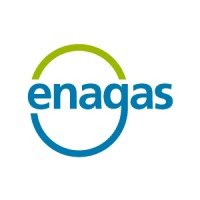Turkey plans to develop hydrogen strategy with grey and green
Grey hydrogen seems to be a pivot in the country hydrogen strategy to reduce the trade deficit

Like several other countries, Turkey has also announced to develop the national hydrogen strategy to diversify the energy mix, H2 Bulletin reports.
Turkey Minister of Energy and Natural Resources Fatih Dönmez has announced that the country will develop a national hydrogen strategy by incorporating feedback from businesses and consumers. His announcement came during the Gazbir-Gazmer Clean Energy Technology Centre opening ceremony for blending natural gas and hydrogen for domestic use. The facility is opened with an investment of TRY 6 million (US$ 0.74 million).
He said that although most studies are still in their infancy, experts describe hydrogen as the future energy carrier. Hydrogen is a source in which we want Turkey to be involved in the future of energy strategies. Works have already been started on exploring hydrogen applications. Mobility is one area where hydrogen can play its role and benefit the country growing LNG and CNG powered trucks. Heavy vehicles and hydrogen-powered trains are also on the agenda.
The minister said that hydrogen would help us add more renewable energy into the system, decarbonise the energy sector, and support demand for storage and transmission pipes. However, the minister hints at making hydrogen by using domestic coal with capturing carbon dioxide (grey hydrogen). Mr Dönmez said that several foreign organisations showed great interest in Turkey’s hydrogen export potential, and we are working to explore our green hydrogen export potential.
H2 Bulletin understands that Turkey’s natural gas imports account for a substantial trade deficit, and opting for a coal-based hydrogen route can be one of the strategies to reduce reliance on natural gas. Green hydrogen can be used for export purposes which can further drive the trade deficit down.
Some experts also suggested producing hydrogen through metal hydrolysis. Dr İskender Gökalp at Turkey’s Metu Mechanical Engineering Department said Turkey has 73% of the world’s boron reserves, which can be employed to produce hydrogen.
The Shura Energy Transformation Center, a Turkish energy think tank, was founded in partnership with the European Climate Foundation (ECF), Germany’ Agora Energiewende, and Sabancı University Istanbul Policy Center (IPC) in 2018 to facilitate Turkey’s transformation into a low-carbon energy system. The centre has recently published a report on priorities for the country national hydrogen strategy, which pointed out that cost has remained a concern for many, but costs should be evaluated together with infrastructure costs. Hydrogen is a technology that needs infrastructure.
The report presented a scenario of substituting 5%-15% share of the total production from traditional routes or the energy mix yields a green hydrogen potential of around 4.6 Mtoe/year, which is equivalent to about 5% of the country’s total energy demand, would be achieved by a total of 12.1 GW electrolyser capacity. The investment requires for such an amount of electrolysis capacity is estimated at US$ 9.1 billion at a capital cost of US$750/kW.
